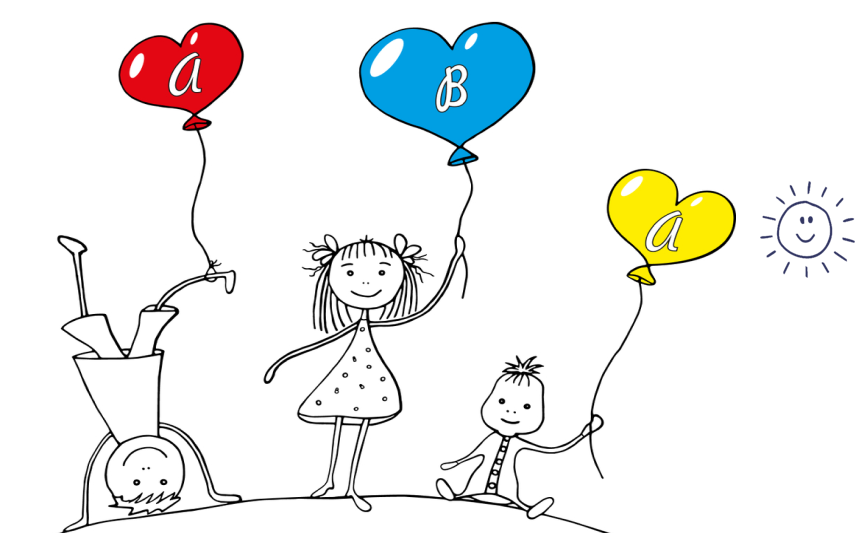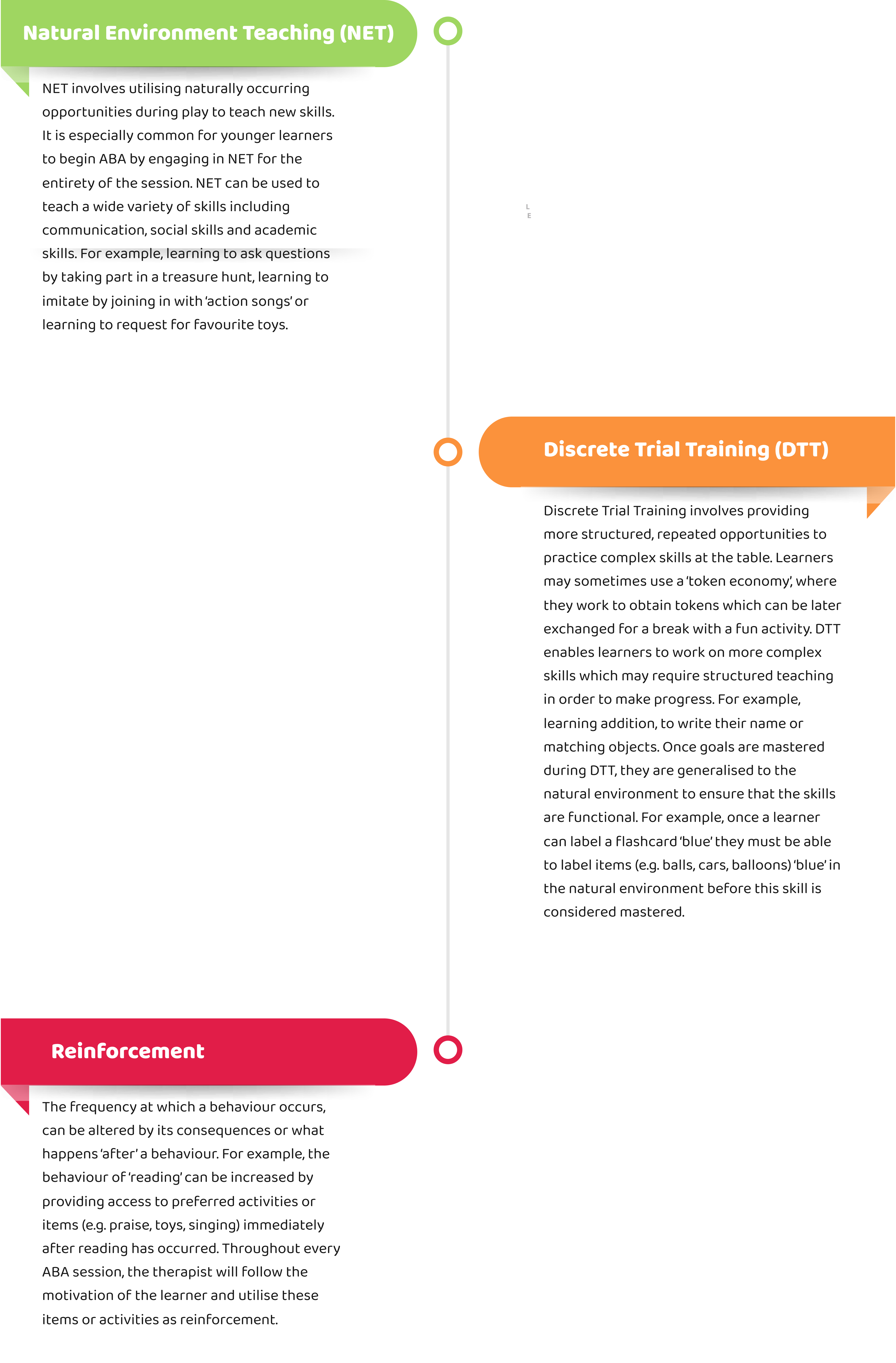

Applied BehaviourAnalysis
What is ABA?
Applied Behaviour Analysis (ABA) is the applied branch of the science of Behaviour Analysis. Behaviour analysis focuses on how behaviours change or are affected by their environment. Subsequently, ABA utilises changes in the environment to teach socially significant skills or reduce behaviour that has a significantly negative impact on an individual’s life. ABA is an evidenced based intervention which effectively supports individuals with Autism Spectrum Disorder (ASD), behavioural issues, intellectual disability or developmental delays to develop socially significant skills.
Consultation, Assessment and Programme Selection
Each ABA program is individualized according to the needs and goals of each individual. The typical process of program selection includes:
Consultation and Observation: Initial consultation usually involves meeting (via phone or in person) to discuss the individual, family goals and concerns. A short observation is conducted with the learner to begin the pairing process (building a positive relationship), to introduce them to the environment and begin the selection of appropriate assessment tools.
Assessment: Once a parent questionnaire detailing the individual’s personal information, medical and behavioral history has been filled out, an assessment will take place. The duration of assessments may vary according to the needs of each individual. Reach Out uses a variety of assessments (e.g. ESDM, VB-MAPP, ABLLS-R, AFLS, EFL) to assess current skill levels and inform the selection of future goals. Once the assessment process has been completed, an initial report detailing the skills profile of the individual will be provided.
Program Selection: A combination of information provided from assessments, family goals and (where possible) client self-selected goals will be utilized to produce an individualized intervention plan. Programs may work on communication, academic skills, challenging behavior reduction, functional life skills and social skills. Programs are designed by a Board-Certified Behavior Analyst (BCBA) and then implemented by a Registered Behavior Technician (RBT). RBTs carry out daily implementation of therapy, whilst BCBAs monitor ongoing progress towards program goals.
How are skills taught?

Managing Challenging Behaviour
ABA programmes may also work towards reducing behaviour that is having a negative impact on an individual’s life. Behaviour analysis seeks to understand why these behaviours are occurring, by understanding what the learner is trying to communicate by engaging in problem behaviour. An individual may engage in challenging behaviour to escape a work task, access the attention of others, to access preferred items or because they enjoy the sensory stimulation it provides.
For example, if a learner is frequently engaging in shouting during classroom work, they may be attempting to ‘escape’ from work activities. A behaviour-based intervention could teach this individual to request appropriately for a ‘break’ whilst simultaneously building their tolerance to work for extended periods of time.
The behaviours targeted for reduction are selected carefully to improve quality of life whilst maintaining an individual’s ability to advocate for and express themselves. For example, whilst self-stimulatory behaviours (i.e. stimming) may sometimes be socially stigmatising, they often provide an important method of emotion regulation for individuals with additional needs. Similarly, whilst it is important for individuals to learn to follow instructions to access academic environments, it is also important to learn when to not follow instructions (e.g. if approached by a stranger) and how to advocate for their own needs. These factors are carefully considered when selecting behaviours to target for reduction as part of an ABA programme.



